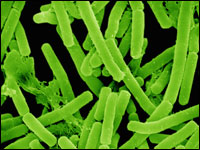 Drs. Jonette Keri and Rajiv Nijhawan from the University of Miami in Florida have reviewed the evidence.
Drs. Jonette Keri and Rajiv Nijhawan from the University of Miami in Florida have reviewed the evidence.
Here are the highlights. Continue reading Is there a diet-acne connection?
 Drs. Jonette Keri and Rajiv Nijhawan from the University of Miami in Florida have reviewed the evidence.
Drs. Jonette Keri and Rajiv Nijhawan from the University of Miami in Florida have reviewed the evidence.
Here are the highlights. Continue reading Is there a diet-acne connection?
 For the average American kid — you know the one: has caring parents, lives in a nice place, with no wants or needs — acne is likely to be the first event that can not be easily controlled to their satisfaction.
For the average American kid — you know the one: has caring parents, lives in a nice place, with no wants or needs — acne is likely to be the first event that can not be easily controlled to their satisfaction.
It’s God’s way of saying, “Look, there are going to be things in your life that you just have to make the best of. Get used to it. You can practice on acne.”
 In an adolescent’s zeal to punish pimples, there is a tendency to select the most harsh, abrasive skin cleansers available. If sandpaper could be made to produce suds, some young people (and adults) would use it.
In an adolescent’s zeal to punish pimples, there is a tendency to select the most harsh, abrasive skin cleansers available. If sandpaper could be made to produce suds, some young people (and adults) would use it.
Craig Burkhart, MD, of the Department of Dermatology at Ohio University School of Medicine has a better approach.
 Herbalists recommend more than a dozen herbal remedies for acne and scarring, according to a recent article.
Herbalists recommend more than a dozen herbal remedies for acne and scarring, according to a recent article.
Unfortunately, only 1 of these herbals is supported by the results of a study in patients. Continue reading Acne: Recommendations are easy; data, scarce
![]() Acne cosmetica was first described over 30 years ago. It was proposed that substances in cosmetic products caused the formation of comedones (blackheads) and, in some cases, an eruption. Changes in cosmetic ingredients make acne cosmetica much less common today, although it is reported occasionally.
Acne cosmetica was first described over 30 years ago. It was proposed that substances in cosmetic products caused the formation of comedones (blackheads) and, in some cases, an eruption. Changes in cosmetic ingredients make acne cosmetica much less common today, although it is reported occasionally.
Dr. Zoe Draelos, a clinical associate professor in the Department of Dermatology at Wake Forest University and Bowman Gray School of Medicine, published a review that answers many issues about cosmetics, cosmeceuticals and acne. Here are 4 myths, dispelled.
 Acne vulgaris has anecdotally been attributed to diet.
Acne vulgaris has anecdotally been attributed to diet.
This review by researchers at The George Washington University Medical Center, in Washington, DC, found convincing data supporting the role of dairy products and high-glycemic-index foods. Continue reading Support for the effect of diet on acne
![]() Faculty members from Hamdard University in New Delhi, India have published a review on Medscape of treatment options for acne, with emphasis on herbal treatment options.
Faculty members from Hamdard University in New Delhi, India have published a review on Medscape of treatment options for acne, with emphasis on herbal treatment options.
Here’s a summary of the herbal section. Continue reading Herbal treatments for acne vulgaris
 I recently came across a website advocating herbals to treat or prevent acne.
I recently came across a website advocating herbals to treat or prevent acne.
The website isn’t important, but the results of my PubMed searches might be useful. Continue reading Ineffective herbal remedies for treating acne
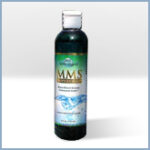 This product, when used as directed, produces an industrial bleach that can cause serious harm.
This product, when used as directed, produces an industrial bleach that can cause serious harm.
Swallowing doses of this bleach, such as those recommended in the labeling can cause nausea, vomiting, diarrhea, and symptoms of severe dehydration. Continue reading Consumer Alert: Miracle Mineral Supplement aka MMS
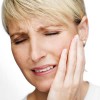 Its claimed anti-pain and anti-inflammatory properties in homeopathic medicine have led to a number of studies in patients with acute pain.
Its claimed anti-pain and anti-inflammatory properties in homeopathic medicine have led to a number of studies in patients with acute pain.
Researchers at University of Witten/Herdecke, in Germany reviewed the evidence for using St. John’s wort (Hypericum perforatum) for pain conditions in homeopathic dental practice. Continue reading Does anyone use St. John’s wort to treat dental pain?
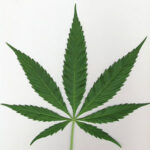 Cannabis use is associated with an increased risk of psychosis. It’s suggested that genetic variation in the AKT1 gene might influence this adverse effect.
Cannabis use is associated with an increased risk of psychosis. It’s suggested that genetic variation in the AKT1 gene might influence this adverse effect.
Researchers at Kings College London, in the UK, studied the connection. Continue reading Predicting the risk of psychosis in cannabis users
 The surest way to know that there is no truly effective treatment for a condition is to count the number of treatment recommendations. The more recommendations, the less likely it is that any of them have a significant effect. I’m not sure if there is a tipping point. Whether 6 or 12 or 20 recommended treatments guarantee that you will have less than complete cure.
The surest way to know that there is no truly effective treatment for a condition is to count the number of treatment recommendations. The more recommendations, the less likely it is that any of them have a significant effect. I’m not sure if there is a tipping point. Whether 6 or 12 or 20 recommended treatments guarantee that you will have less than complete cure.
Here are some of the recommendations from just one article.
![]() A big challenge in treating acne is sticking with treatment over the long haul. Dr. Mary Lupo, a dermatologist and clinical professor at Tulane University School of Medicine in New Orleans, says there are four secrets to helping people stick with their acne treatment.
A big challenge in treating acne is sticking with treatment over the long haul. Dr. Mary Lupo, a dermatologist and clinical professor at Tulane University School of Medicine in New Orleans, says there are four secrets to helping people stick with their acne treatment.
Proponents of the use of medical marijuana like to start speeches and articles by quickly stating that cannabinoids are of proven value in treating many diseases.
Poppycock. This site has stated repeatedly: not true, not true, not true.
Now the evidence is in, and we were right. JAMA confirms that the evidence supporting the effectiveness of cannabinoids is tenuous at best. And risk of side effects with cannabinoids to treat anything is high.
If you expect aromatherapy to cure a major illness, you will probably be disappointed, according to AromaWeb — a source of practical information on this complementary treatment.
The available scientific evidence (such as it is) supports this statement. The Natural Standard website (which charges a membership fee) conducted literature reviews on the various applications of aromatherapy and concluded that even for the best documented conditions (eg, anxiety and agitation), the data are conflicting and based on small, poorly designed trials.
However, to conclude from this that aromatherapy is to be avoided would be excessive. Its current use is not intended to replace standard medical care but complement it. If using volatile plant oils, including essential oils, improves your sense of psychological and physical well being, by all means, indulge yourself.
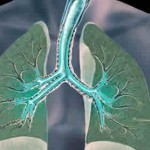 Emphasis in this study by researchers in Spain was on walking, the most common form of physical activity. Continue reading Hospitalization rate based on changes in physical activity in people with COPD
Emphasis in this study by researchers in Spain was on walking, the most common form of physical activity. Continue reading Hospitalization rate based on changes in physical activity in people with COPD
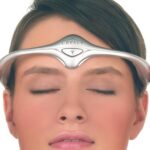 It’s the first device approved to prevent migraine headaches, and the first transcutaneous electrical nerve stimulation (TENS) device specifically authorized for use prior to the onset of pain.
It’s the first device approved to prevent migraine headaches, and the first transcutaneous electrical nerve stimulation (TENS) device specifically authorized for use prior to the onset of pain.
Here’s what we know about Cefaly. Continue reading TENS device FDA-approved for migraine prevention
 Cerebral palsy results from injury to or abnormal development of the brain, with various problems in movement, posture, and other behavioral functions.
Cerebral palsy results from injury to or abnormal development of the brain, with various problems in movement, posture, and other behavioral functions.
Researchers at the Graduate School of Education and Ewha Music Rehabilitation Center, in Seoul, Korea, studied the effects of Therapeutic Instrument Music Performance (TIMP) for fine motor exercises in adults with cerebral palsy.
Continue reading Benefits of keyboard playing in people with cerebral palsy
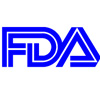 The U.S. Food and Drug Administration announced its preliminary determination that partially hydrogenated oils — the primary dietary source of artificial trans fat in processed foods — are not “generally recognized as safe” for use in food.
The U.S. Food and Drug Administration announced its preliminary determination that partially hydrogenated oils — the primary dietary source of artificial trans fat in processed foods — are not “generally recognized as safe” for use in food.
It wasn’t always so.
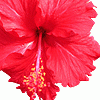 Hibiscus sabdariffa L. (roselle, red sorrel; Arabic: karkade) grows as large shrubs or small trees that produce huge, colorful, trumpet-
Hibiscus sabdariffa L. (roselle, red sorrel; Arabic: karkade) grows as large shrubs or small trees that produce huge, colorful, trumpet-
Researchers at the University of Malaya, in Kuala Lumpur, reviewed the data on its effectiveness and safety. Continue reading Lack of effect of Hibiscus sabdariffa L. on cholesterol